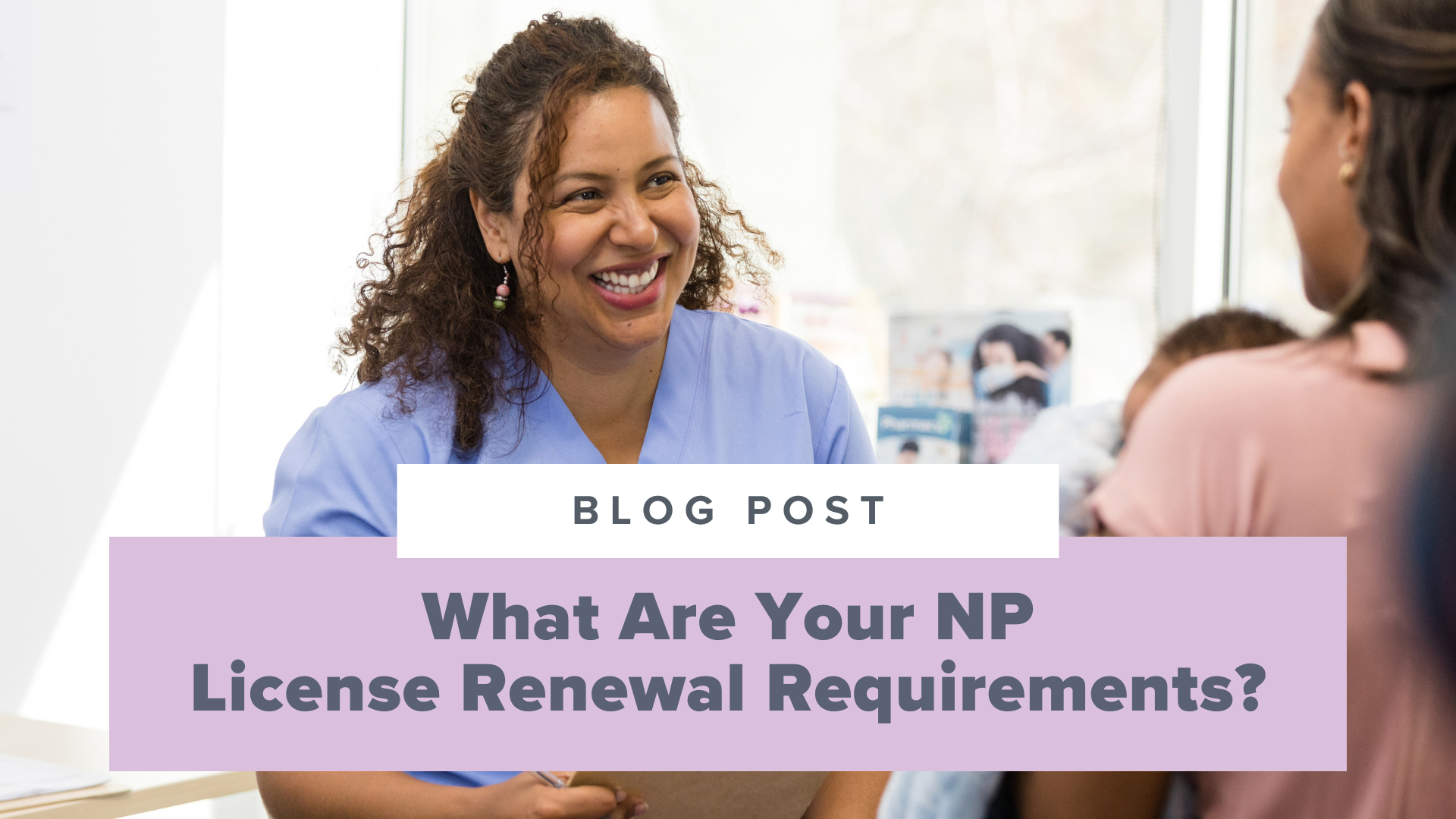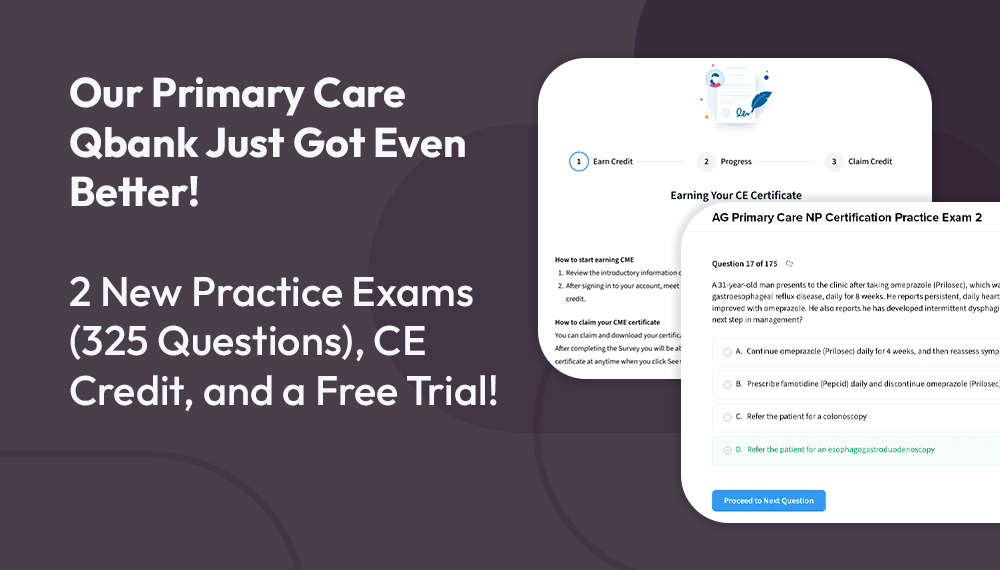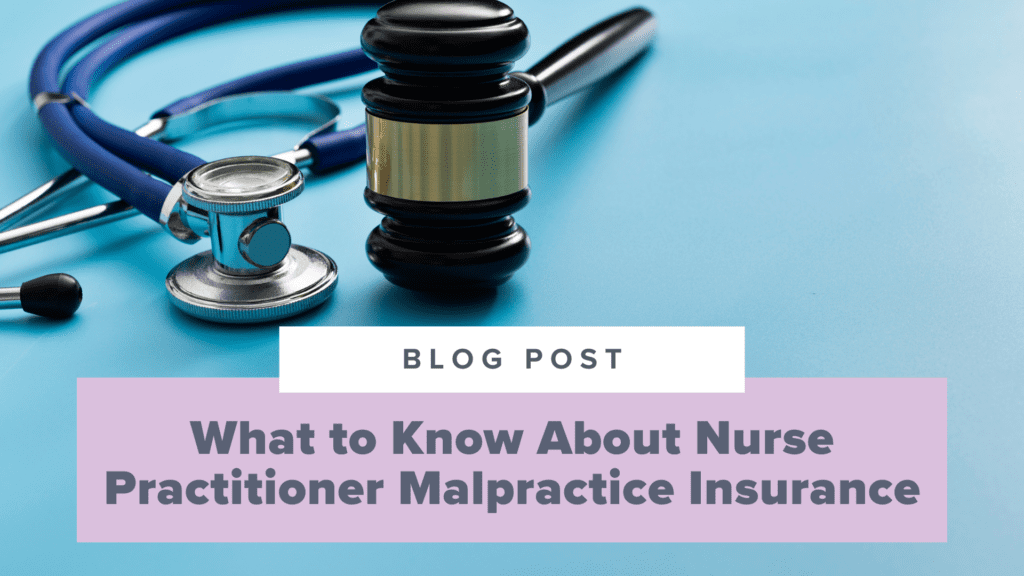

Picture it: You’ve been practicing as a real-deal nurse practitioner for at least a year and then you suddenly remember that you need to renew your license soon. But what about your certification? When does that get renewed? And where do you even start?
In this post we’ll cover everything you need to know about renewing your nurse practitioner license and certification, so you feel prepared and organized for both when the time comes. We’re going to make all of this a bit less stressful for you!
Let’s start by taking a look at licensing vs. certification, and why it’s important to understand the difference between the two.
License and certification are often used in the same conversation, but they’re not interchangeable. A license allows you to practice within a particular jurisdiction, or in this case, a particular state. Licenses are managed by your state’s Board of Nursing or similar agency.
In order to be licensed as a nurse practitioner, you have to graduate from an accredited program AND pass your board certification exam. Becoming certified means that you have specialized knowledge in a specific area of practice (e.g., Family Nurse Practitioner or Primary Mental Health Nurse Practitioner).
When renewing your NP license, it’s important to understand that you also need to maintain your RN license. (Yes, even if you’re clinically practicing in the capacity of a nurse practitioner, you must maintain your license as an RN!)
Every state has their own timelines for renewal. It’s up to you to know how often you need to do it. For example, in Pennsylvania where I personally practice, my RN and NP licenses are renewed every two years and are on the same renewal date cycle.
Also, you’ll have to complete any continuing education requirements for both your RN and NP licenses. Review your state’s requirements carefully to see what type of continuing education is accepted. Some states may require a set number of hours in pharmacology continuing education for renewal of the NP license.
Check out our other post, Continuing Education for NPs: What You Need to Know , for more information about earning CE credits!
Ok, let’s get to the information we can get really specific about: certification renewal!
If you’re certified through the American Association of Nurse Practitioners (AANP), then you’ll want to visit the American Academy of Nurse Practitioners Certification Board (AANPCB) for complete information. (You probably won’t be surprised to learn there’s a fee for renewing your certification.)
You have two options to renew, or “recertify,” every five years. You can recertify by examination, meaning you take the board certification test in your specialty all over again. That option is pretty self-explanatory, but know you must also be up-to-date with your RN license.
OR, you can recertify by showing proof of practice hours and continuing education. The specific requirements here are:
1. A minimum of 1,000 practice hours as an NP in the population focus of certification.
– Roles may include: direct patient care, administration, educator, and/or researcher.
– Practice must be during the 5-year certification period.
2. A minimum of 100 contact hours in advanced practice continuing education.
– 25 contact hours must be in advanced practice pharmacology.
– Precepting (max 120 hours) can replace up to 25 non-pharmacology CE.
– Continuing education must be completed during the 5-year certification period.
3. You must hold current RN or APRN licensure.
If you’re certified through the American Nurses Credentialing Center (ANCC), then you’ll want to visit their site for more information.
Similar to AANP, ANCC has a renewal fee and uses a 5-year certification cycle. But there are a few more paths to renewal available.
The requirements are:
– You must hold a current RN license.
– You must hold a current ANCC board certification.
– You need to complete 75 hours of continuing education related to your NP specialty. (25 hours must be advanced practice pharmacology.)
Additionally, you need to complete at least one of the following eight certification renewal categories in its entirety:
– An additional 75 continuing education hours
– Academic credits
– Scholarly presentations
– Evidence-based practice or quality improvement project or research/publication
– Preceptor hours
– Professional service
– Clinical practice hours
– Re-testing
And if you’re in a clinical role where you’re prescribing any type of controlled substance, we want to briefly mention the requirements for renewing your DEA license. DEA stands for the Drug Enforcement Agency, which falls under the U.S. Department of Justice. The DEA oversees the prescribing of all controlled substances. If you want more information on the schedule of different medications, check it out here .
The DEA license allows NPs to prescribe Schedule II through V medications and is renewed every 3 years. There’s a fee for renewal, and it’s quite expensive (currently at $888). Also, a new one-time training requirement was added in 2022 for all new registrations and renewals, so make sure you’ve completed that as well.
Your head might be spinning with all of the different timelines, continuing education hours, and fees to keep track of. But it’s ok! You’ll get plenty of reminders from the licensing and certification organizations when you’re coming up on renewal time.
Here’s some final tips to make this process as smooth as possible:
Stay organized.
– Keep track of regular CE versus pharmacology CE.
– Save the CE certificates in a file you can easily access and upload as needed.
Don’t procrastinate.
– Do a little bit of continuing education each year!
– Don’t wait until the last minute! Plan to renew a month or two before the expiration date.
Know the regulations.
– In addition to the great info here, make sure to check out the candidate handbooks for AANP and ANCC for complete instructions.
And, if you’d like to connect with other real-deal NPs to support you through various transitions in your career, join our Facebook community!
You worked so hard to become an NP, so don’t let NP license and certification renewal get you down. Just keep these guidelines in mind and you’ll get through it all with no problem. If you need more information, please be sure to reach out to us. We’re here to help you!
Looking for more (free!) content to help you as a real-deal NP? Check out these other posts on the SMNP Reviews blog:



Get FREE support and encouragement from thousands of FNP/AGPCNP students and our NP Support team.
Download these tips that have helped thousands of students pass their NP board exams.
Are you a faculty member and would like to bring Sarah Michelle’s resources to your school? Email us at nursinggroups@blueprintprep.com for special institutional pricing or click on the link below to learn more.
Are you a student and have 10 or more classmates interested in purchasing Sarah Michelle’s courses? Email us at nursinggroups@blueprintprep.com for special pricing.